Sinologists working in literature discover how Sichuan's allure transcends words, Erik Nilsson reports.
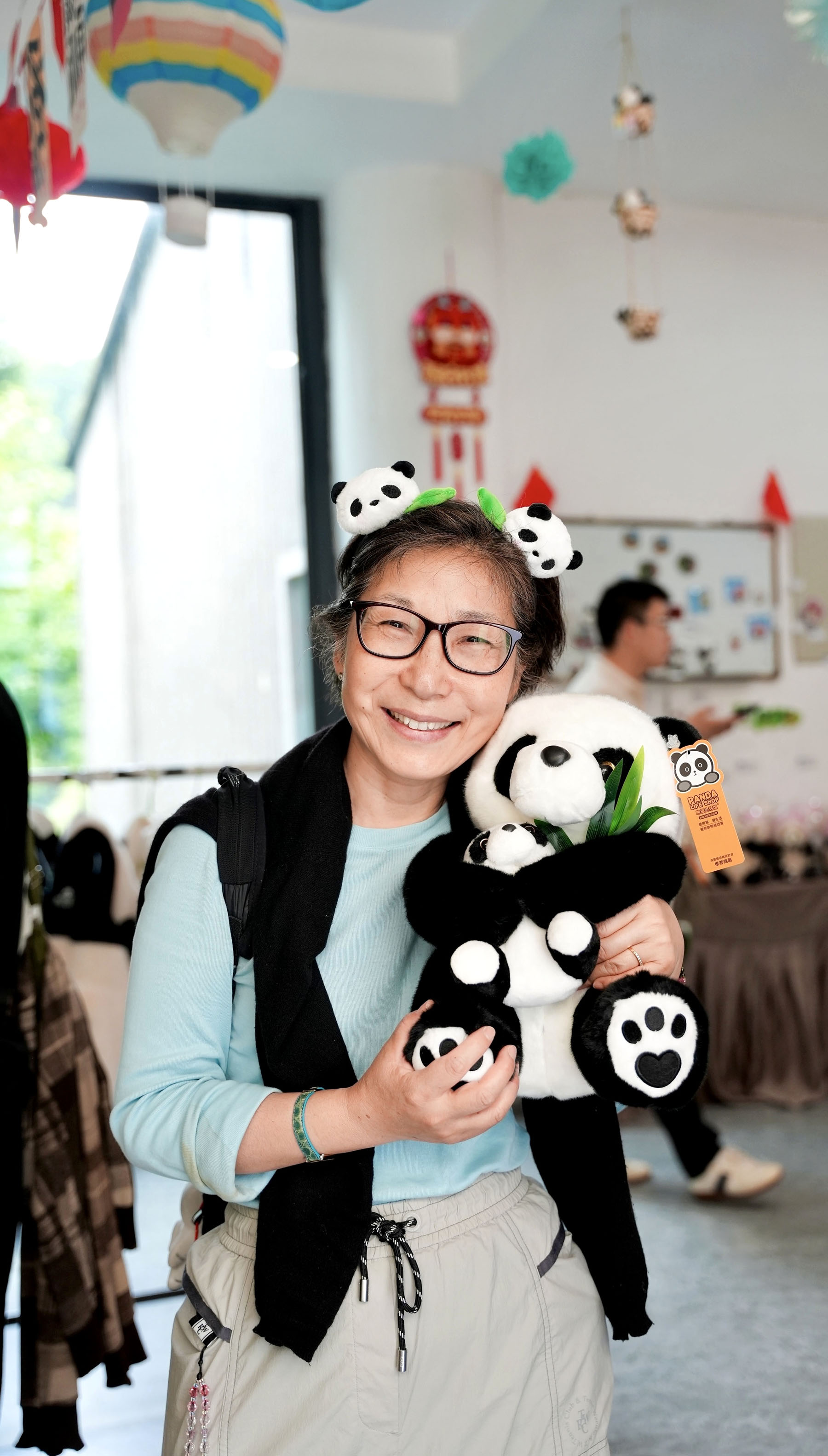
The recent China in the Eyes of Sinologists: Cultural Tour of Sichuan event brought together literary experts from abroad with writers from Sichuan province to translate storytelling experiences across not only languages but also cultures.
"Sichuan is a treasure trove of cultural and geographical diversity," says Alai, vice-chairman of the Chinese Writers Association and chairman of the Sichuan Writers Association, who joined the activities.
"While cultural interpretations may differ, the appreciation for natural beauty is a universal language. This is undoubtedly rewarding."
READ MORE: Sinologists from across the globe speak at Qingdao center
Eight Sinologists from seven countries, including the United States, Tunisia and Egypt, joined six local authors to explore Sichuan and better understand China's realities to enhance their literary undertakings.
"As a Sinologist, the Sichuan journey opened yet another window for my research," says South African professor Paul Zilungisele, who won this year's Special Book Award of China, the highest literary honor the country gives to foreigners.

"Spending the days enjoying different events with these authors provides another perspective on China beyond Beijing and Shanghai. Meeting both leaders and ordinary people in these places reflects the true diversity of China and a glimpse into the lives of its ethnic groups."
The group visited the Red Army Long March Memorial Hall, traditional Xisuo houses and the Zhuokeji Tusi Manor in Barkam in Sichuan province's Aba prefecture; museums, the Alai Book House and scenic destinations in the Skula Mountains; and the Wolong Giant Panda Nature Reserve. Their weeklong journey concluded with the Evening Gala of Sichuan Literature in the provincial capital, Chengdu.
The Zhuokeji Tusi Manor inspired the setting for ethnic Tibetan author Alai's Mao Dun Literature Prizewinning novel, Red Poppies, and was the filming location for the eponymous TV series. Some of the international experts spent years envisioning what the compound was like before actually visiting it with Alai, who entrenched it in their imaginations.
"My biggest regret when translating Red Poppies was not having visited the places where the story takes place," says Spanish Sinologist Agustin Morales in Chinese.
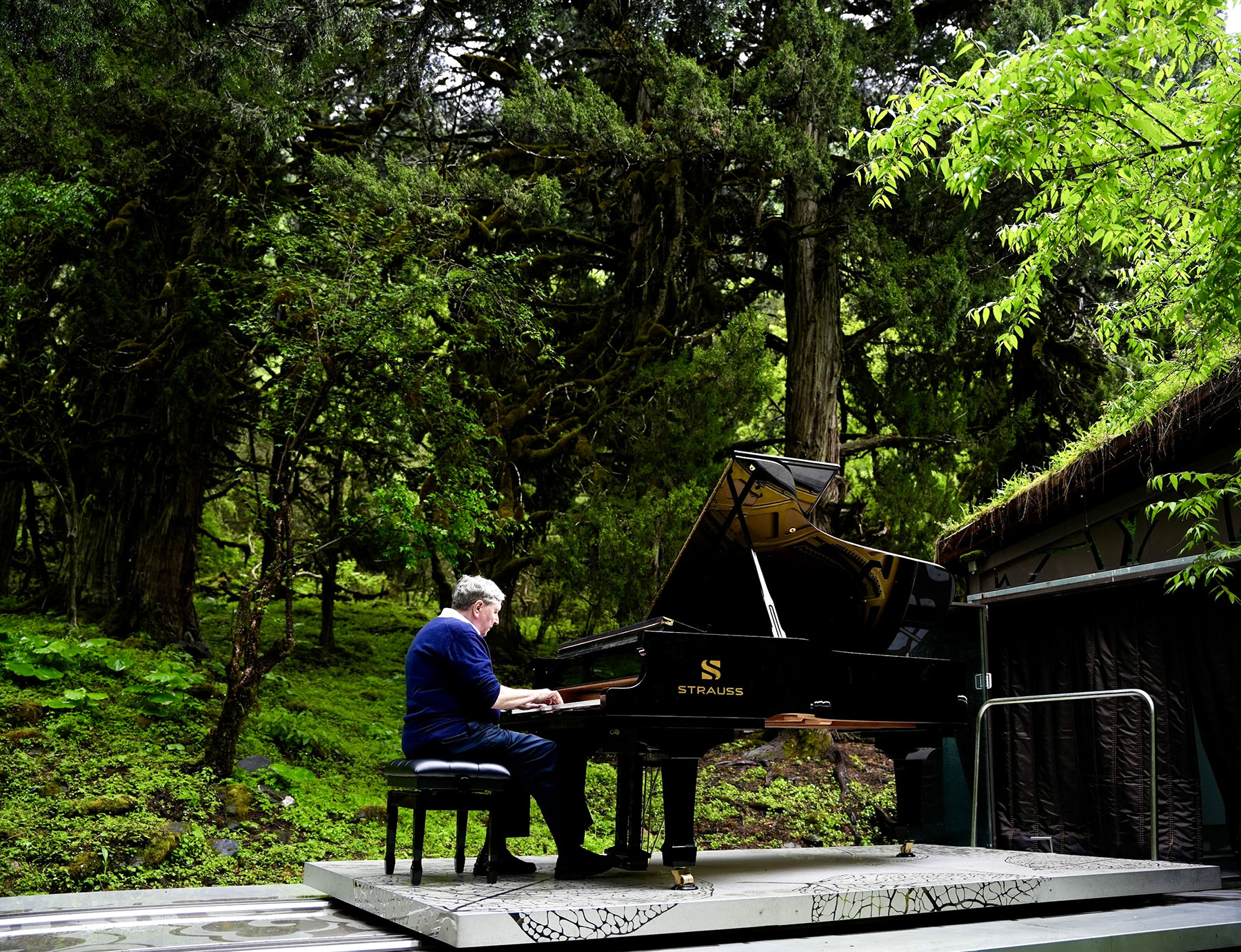
"Fortunately, I recently had the opportunity to travel to Aba prefecture, setting foot in the homeland of the chieftain family and returning to the scenes depicted in the novel. While visiting Zhuokeji Tusi Manor, I could almost catch glimpses of the chieftain's 'idiot' son, and other characters from the book. It was an indescribably surreal feeling.
"I also had the chance to speak with Alai himself and met many fascinating people. Everything exists within the pages of the book, but as the old saying goes, 'seeing once is better than hearing a hundred times'. Those of us working in literature better return to the roots and immerse ourselves in the real world."
Linking the literal with the literary was a core theme of the event.
"There's no such thing as a so-called literary perspective. There are only observations of real life," Alai says.
"We should observe the changes in detail. Doesn't our work start from the actual specifics of life?"
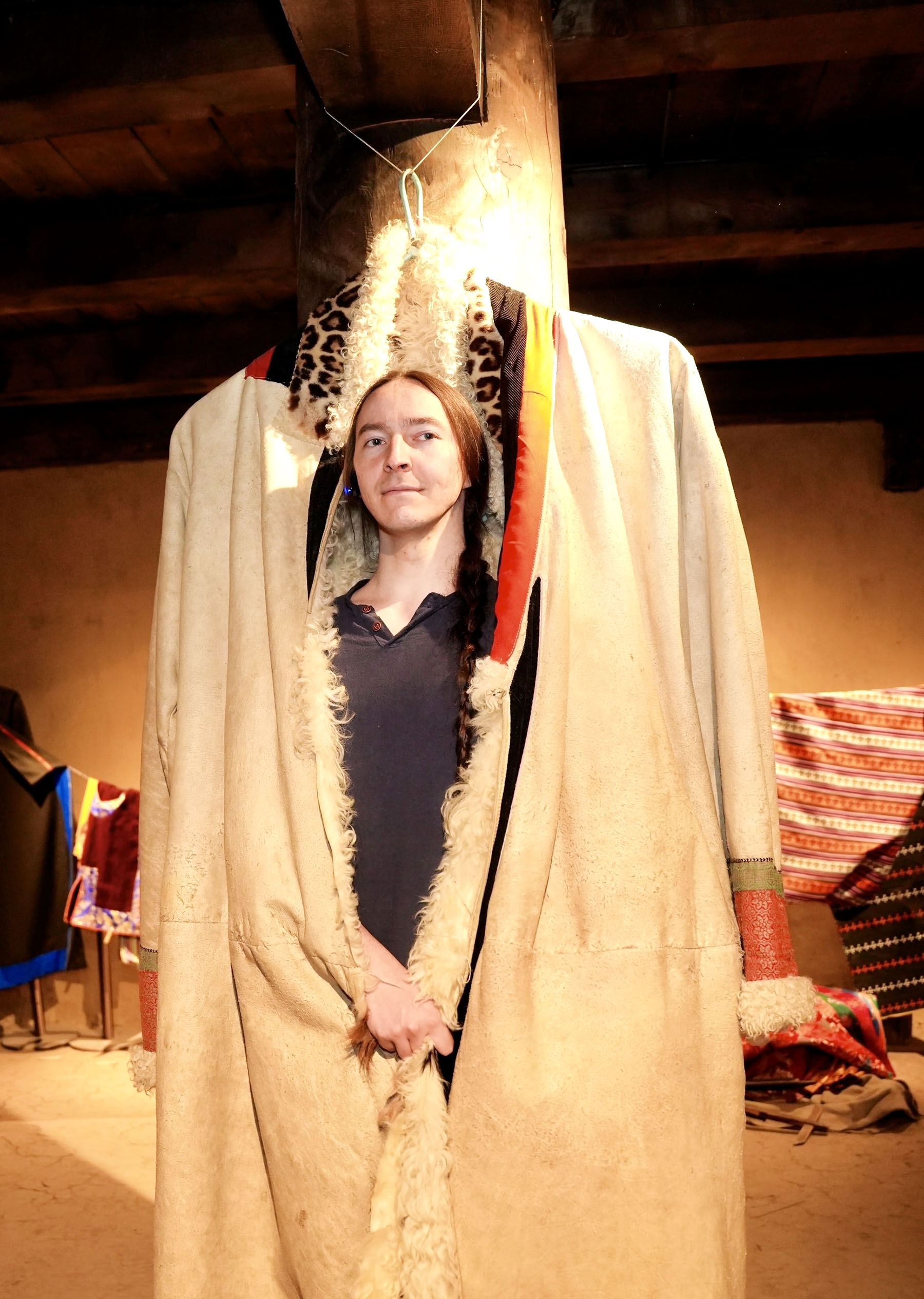
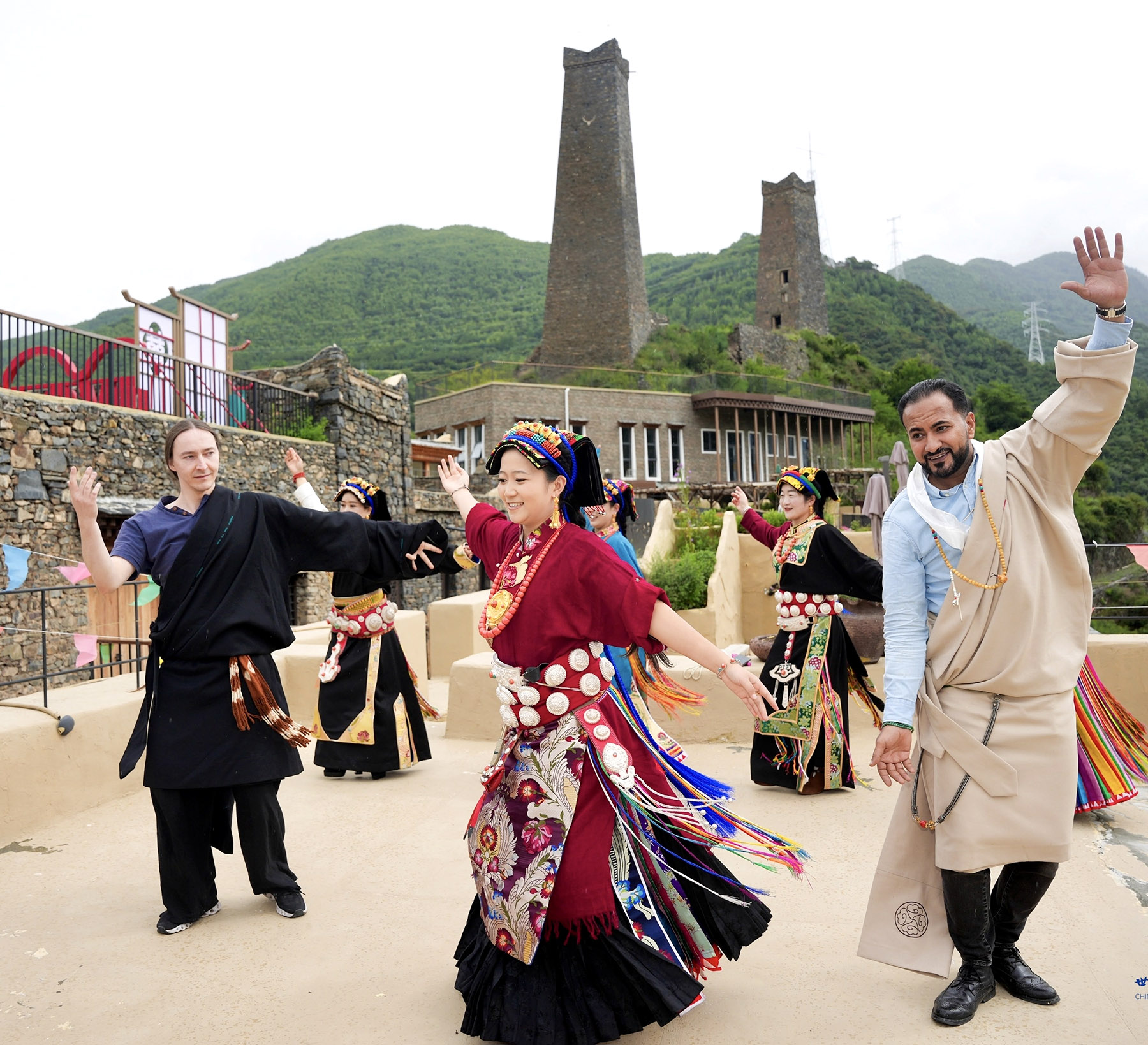
Lin Liying, president of China National Publications Import and Export Group, the event's co-organizer, says: "This kind of immersive engagement helps Sinologists and translators grasp the cultural nuances embedded in Chinese literature, enabling more authentic and insightful translations. At the same time, it reminds us that diversity, differences and contrasts are what make the world vibrant and fascinating."
French scientist and Sinologist Jean Pegouret says: "This trip was cultural and 'political': not only an opportunity to take selfies in nice landscapes, see local dances in traditional clothing, and go shopping. It's an opportunity to build personal relationships to work together in Chinese literature through translation into other languages."
Multiple translation agreements were made during the trip.
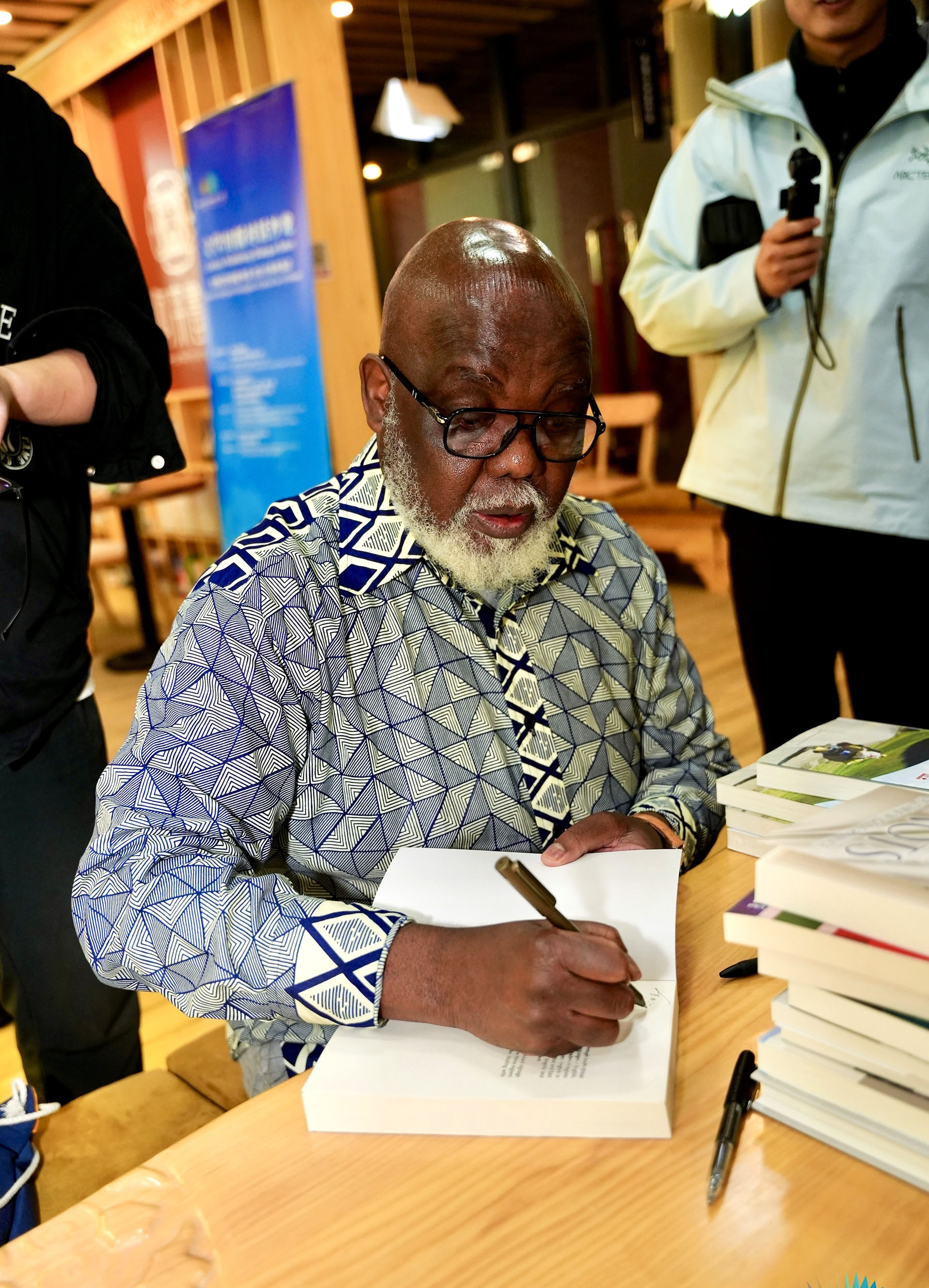
Beyond formal exchanges, participants had meaningful conversations during casual moments shared without microphones, nametags or scripted speeches. They swapped writing tips while riding buses and shared personal China experiences while dipping yak slices into Tibetan hotpot.
"Using books as a gateway to showcase China's civilizational diversity and foster mutual understanding and respect lies at the heart of publishing's mission," Lin says.
"This is not just the duty of publishers and book fair organizers, but a shared responsibility for all who believe in the power of cultural exchange."
Books can serve as entryways, but people must take the literal and metaphoric steps across thresholds.
ALSO READ: Calligraphy offers strokes of tradition
"Only face-to-face exchanges can achieve heart-to-heart communication and forge meaningful connections among people, nations and cultures," says Beijing October Literature and Art Publishing House editor-in-chief Han Jingqun.
"It's through such genuine connections that we can celebrate the beauty of diversity, create shared harmony, break down barriers, and dissolve misunderstandings, allowing us to revel in the beauty of words and ideas within our shared human home."
Contact the writer at erik_nilsson@chinadaily.com.cn


